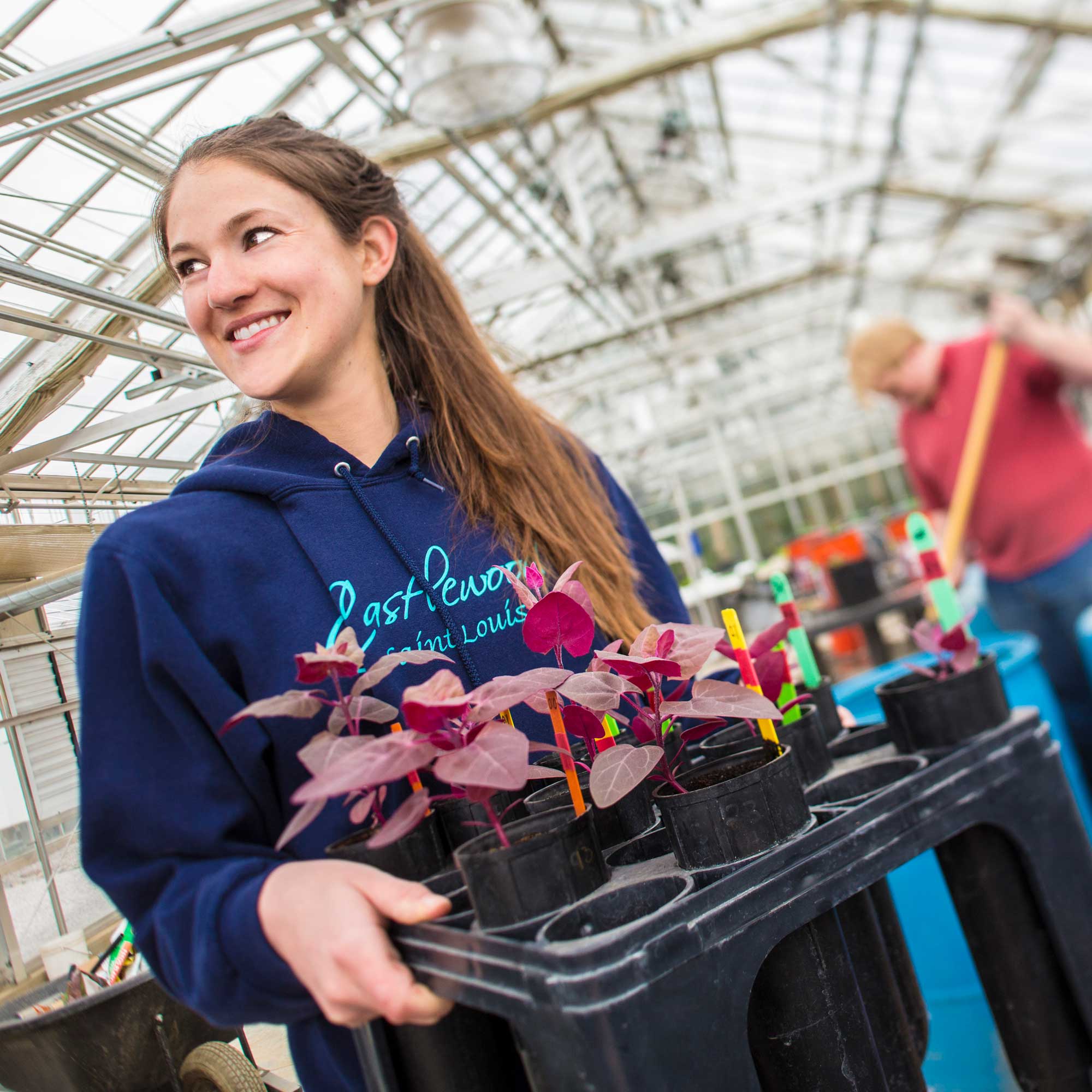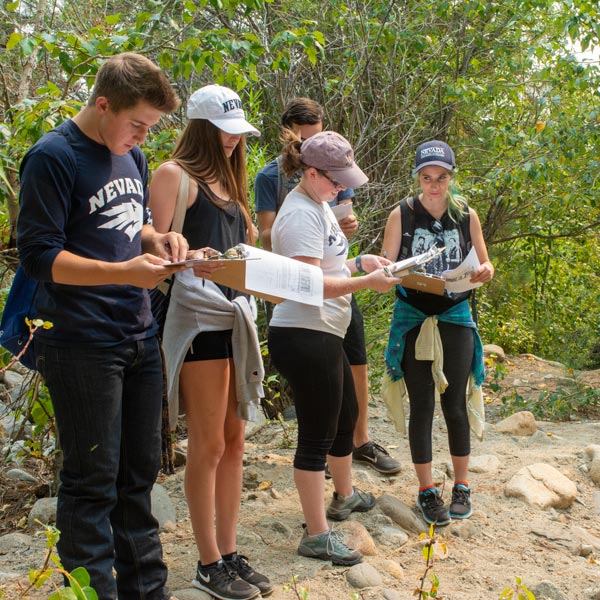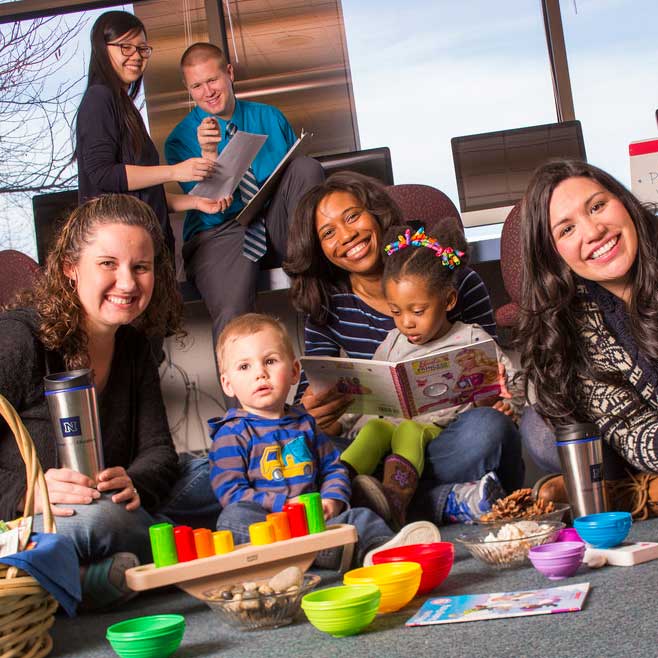In this edition
- Study uses drones and scanners to determine impact of fall grazing on wildfire
- Fresh apples for students and research will spring from new Memorial orchard
- Wildfire Awareness Campaign kicks off with online speaker series
- 4-H youth and Bureau of Land Management work together to give wild horses homes
- Nevada nutrition students excel in unique internship experiences
About our College
A founding college of the University, we have a long tradition of excellence in teaching, research and engagement programs that benefit the health and economic vitality of Nevada. We offer programs in:
- agriculture, horticulture, rangeland & veterinary sciences
- biochemistry & molecular biology
- children, youth & families
- community & economic development
- health & nutrition
- natural resources & environmental science
Study uses drones and scanners to determine impact of fall grazing on wildfire
Livestock grazing and technology work together to reduce cheatgrass and other wildfire fuel
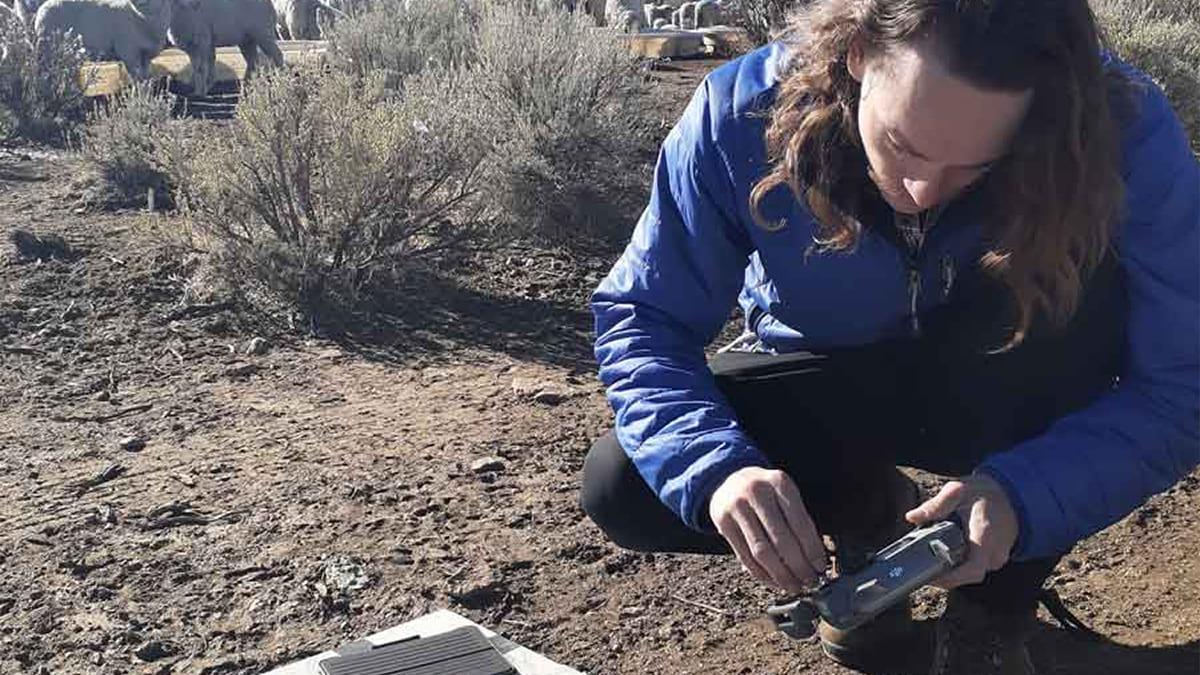
Rangeland Ecologist Joseph Domer prepares a drone to gather data from a pasture in Jacks Valley, Nevada, where sheep are grazing. Photo by Tracy Shane.
A widespread problem on Nevada rangelands is frequent and large wildfires, often due to cheatgrass. Doctoral student Tracy Shane, with the College, recently began a project using cutting-edge technology to see how sheep and cattle grazing might help control cheatgrass.
Shane's project team uses drones and terrestrial laser scanners to monitor and collect data before and after livestock graze on cheatgrass during the fall, rather than in the spring. Previous research showed that this has the potential to prevent fires.
With high-tech data on the impact of fall grazing, the team can create more accurate prediction models for future rangeland management practices and fire fuel reduction.
Using technology to effectively combat an invasive species
“Through fall targeted grazing, we can change the fuel characteristics of the cheatgrass-infested pasture, which reduces the probability that we get a wildfire and increases the chances of being able to control such a fire,” -Professor Barry Perryman
Fresh apples for students and research will spring from new Memorial orchard
Valley Road Experiment Station is home to new Jessica Younger Dickens Memorial Orchard
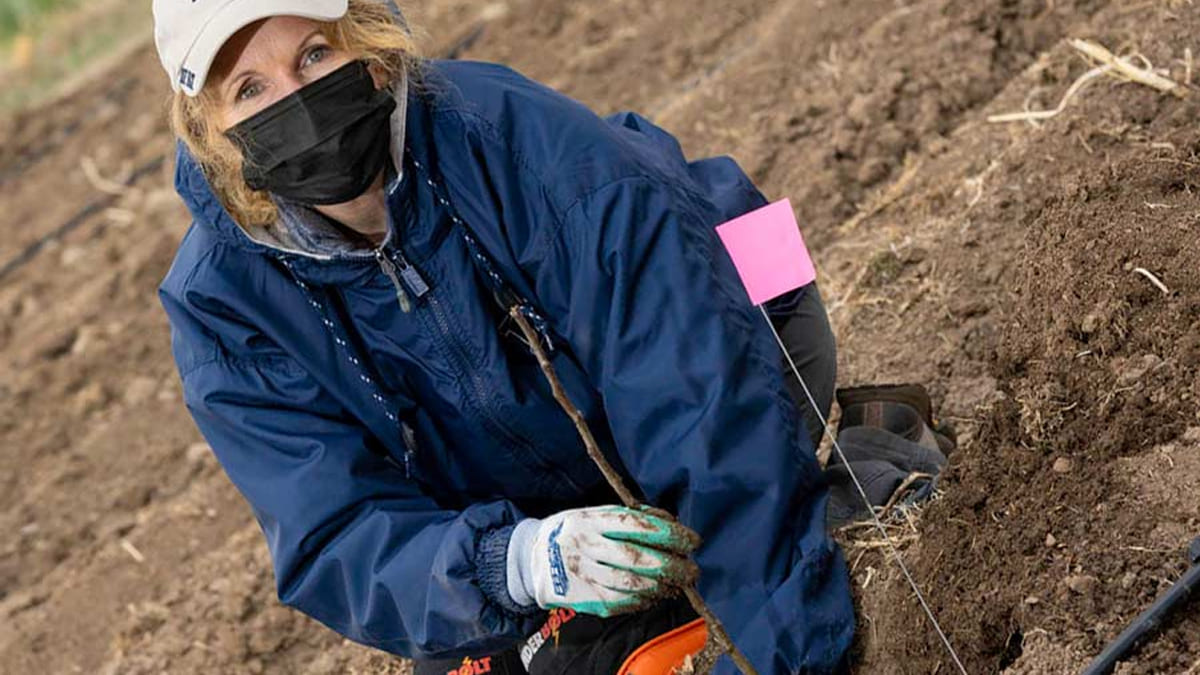 University staff and volunteers plant the new memorial apple orchard at the Valley Road Experiment Station. Photo by Robert Moore.
University staff and volunteers plant the new memorial apple orchard at the Valley Road Experiment Station. Photo by Robert Moore.
A half-acre organic apple orchard consisting of 127 semi-dwarf cider and table apples has been planted at our Valley Road Experiment Station. The orchard will serve many purposes, including identifying and propagating “antique” cider apples from Washoe Valley, as well as providing table apples for students. But to those who knew Jessica Younger Dickens, who passed away in March 2020, the Jessica Younger Dickens Memorial Orchard will provide a place to gather and reflect on the exceptional person she was, and a way to honor her memory. Shortly after she was diagnosed with brain cancer in 2017, she said she’s always wanted an edible garden on campus.
Students in need will get apples through the University’s food pantry, Pack Provisions, from 31 table apple trees. The cuttings from these trees were provided by trees from the personal orchard of Neil Crowley, son of Joe Crowley, who was president at the University from 1978 to 2001. The excess from these trees will be sold to help fund the orchard’s maintenance.
The Experiment Station’s Desert Farming Initiative, which conducts research, provides hands-on learning for students, and donates and sells certified organic produce to the community, will be maintaining the orchard. The Experiment Station and gifts made in memory of Jessica Younger Dickens are funding the orchard.
Commemorating Jessica through meaningful work
Jessica's memorial orchard is intended to commemorate and reflect not only Jessica, but also her values. It was important to her to do meaningful and impactful work. It would truly delight Jessica to know that the fruit from the garden will feed students in need, while promoting appreciation for where our food comes from.” -Yani Dickens, Jessica's widower
Wildfire Awareness Campaign kicks off with online speaker series
Extension and partners team up to provide Nevadans with information and resources
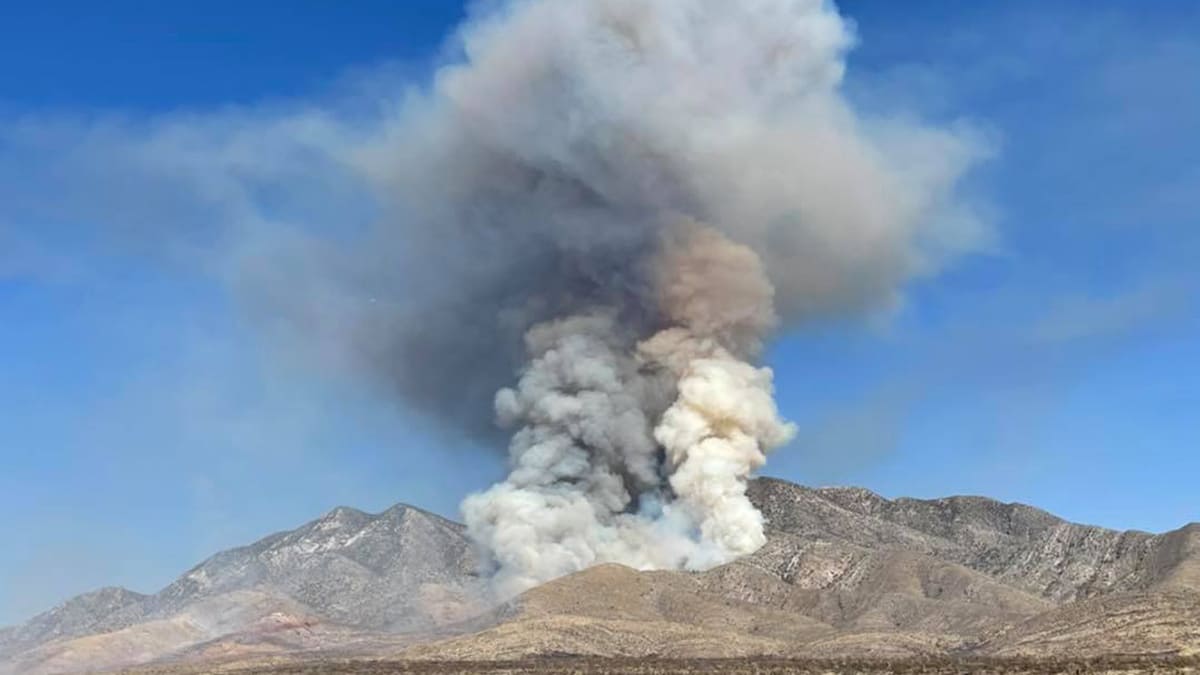 Extension’s Wildfire Awareness Campaign and Living With Fire Program encourage residents to be prepared for wildfires year-round. Photo courtesy of Bureau of Land Management - Nevada.
Extension’s Wildfire Awareness Campaign and Living With Fire Program encourage residents to be prepared for wildfires year-round. Photo courtesy of Bureau of Land Management - Nevada.
Extension and local, state and federal firefighting agencies are on a six-month-long “Nevada Wildfire Awareness Campaign,” which runs through October. As part of the campaign, Extension’s Living With Fire Program will be offering a series of webinars on wildfire-related topics.
“With the number of wildfires occurring in the West and the havoc they have wreaked in recent years, we just really feel that we need keep the drum beating strong all summer and into fall,” said Jamie Roice-Gomes, manager of the program.
Upcoming webinars include:
- Protect, Prevent and Prepare With NV Energy, June 24, noon – 1:30 p.m.
- Wildfire Smoke and Health, July 8, 11:30 a.m. – 1 p.m.
- Home Hardening Q&A, Aug. 12, 11:30 a.m. – 1 p.m.
- Reseeding and Flood After Wildfire, Sept. 9, 11:30 a.m. – 1 p.m.
- Prescribed Fire in Tahoe and Nevada, Oct. 14, 11:30 a.m. – 1 p.m.
Campaigning for wildfire awareness
“There is so much information that can help people make their homes and properties safer from the threat of wildfire, and we want to keep people thinking about this, and acting on it, throughout the summer, and really all year.” -Living With Fire Program Manager Jamie Roice-Gomes
4-H youth and Bureau of Land Management work together to give wild horses homes
Extension’s 4-H youth prepare wild horses and a burro for adoption
4-H member Alexis works with her wild horse foster, Vinnie, on tight turns and forward and backward movement. Video courtesy of High Sierra Riders 4-H Club.
This spring and summer, youth in the Nevada 4-H Youth Development Program are preparing wild horses and a burro for adoption. The youth, part of Extension’s Washoe County 4-H Horse Program, received the animals, all not yet a year old, from the Bureau of Land Management in March as part of a program between Extension and the bureau to place wild horses with adoptive families.
Sarah Chvilicek, 4-H program coordinator, said, “They want to find a way to rehome wild horses because the horses are healthy animals, and they want to give these animals a chance.”
Meet the 4-H'ers and their animals






Growing leadership, citizenship and life skills
4-H is a community of young people across America. Members learn life skills, make new friends, enhance self-esteem, achieve personal goals, develop positive relationships with peers and volunteers, and have fun learning and sharing as a family and a club.
Nevada nutrition students excel in unique internship experiences
Students in Dietetic Internship Program gain valuable experience in telehealth during COVID-19
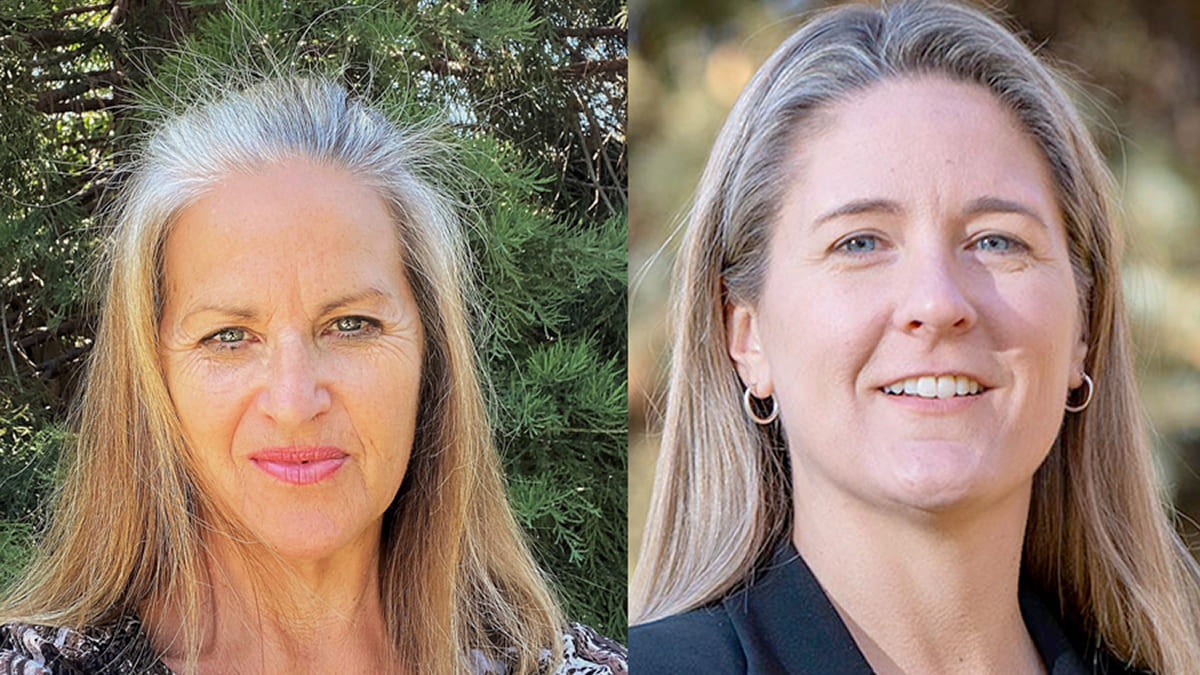 Karon Felten and Jolyn Wirshing are working with students to ensure they succeed in the Dietetic Internship Program.
Karon Felten and Jolyn Wirshing are working with students to ensure they succeed in the Dietetic Internship Program.
Students in our Dietetic Internship Program persevered through the pandemic by developing unique skills to help patients virtually.
Traditionally, graduating students in our Department of Nutrition, as well as other students throughout the United States, go through an online application process with the goal of being matched with a dietetic internship. This is a necessary step to becoming a Registered Dietician Nutritionist.
Students who match with our College's internship program participate in an intensive curriculum that prepares them for the board exam and professional world in seven months, compared to the typical 15 months. However, the students were displaced from their training sites during the pandemic due to COVID-19 restrictions. Karon Felten, director of our College's internship program, had to adapt.
Every week, she and Arezou Saeedi, assistant director of the program, met with students through Zoom and guided them through case studies that simulate in-hospital scenarios. Students presented educational projects and participated in telehealth observations to help patients online.
Communication and support are a key component of our Nutrition programs, especially during this past year, and both Felten and Jolyn Wirshing, director of our College's Didactic Program in Dietetics, were always accessible via Zoom or phone to help or answer questions.
Delivering valuable experience despite COVID-19
“I really did like the program, I think I got a good variety of experiences, and it was great that the program was accelerated, and I was still able to intern full time. Even though some of the program was impacted by health restrictions, I don’t think I missed out on anything." -Graduating student Emily Spellman
Growing a stronger Nevada
Our programs work together to make an impact
Our teaching, research and engagement programs are intertwined and complement one another. Faculty who teach on campus also conduct research as part of our Experiment Station, allowing students to learn about and participate in research. Extension faculty engaging with communities identify research needs, as well as join Experiment Station faculty to conduct research. Faculty on campus help to develop Extension programs in communities.
